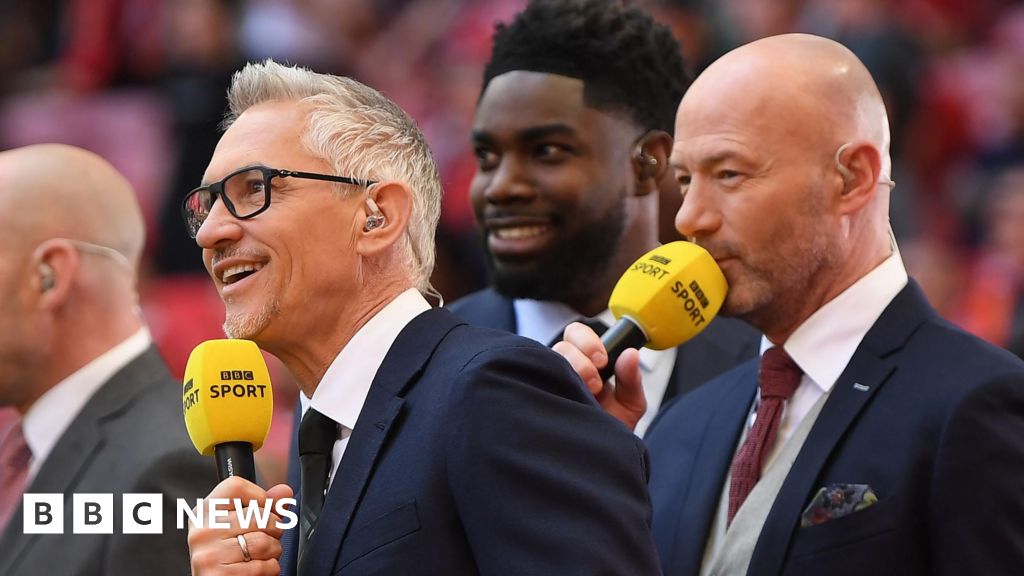ARTICLE AD BOX
 Image source, Getty Images
Image source, Getty Images
David Walliams and Matt Lucas created and starred in award-winning show Little Britain
By Emma Saunders
Entertainment reporter
A Little Britain sketch has been deemed "explicitly racist and outdated", with some viewers surprised it is still available to watch on BBC iPlayer.
TV watchdog Ofcom showed people a number of clips as part of a study into views on potentially offensive content.
The Little Britain sketch, first shown in 2002, features a David Walliams character using racist terms to describe an Asian character.
Ofcom said participants in its research felt that "society had moved on".
In response, the BBC said: "All jokes in our output are judged on context and intent.
"The sketches in which the character Linda Flint makes reference to the appearance or race of a series of people are intended to expose and ridicule some of the outdated prejudices and racism that still exist in parts of British society, which is more apparent when viewing the sketches within the context of a full episode, and across the series as a whole.
"The programme is part of the BBC's comedy archive and information is provided for iPlayer viewers about the inclusion of discriminatory language."
Before viewers click to watch the episode, they see a warning that reads: "Contains adult humour. Contains discriminatory language."
Peaky Blinders, starring Cillian Murphy, was among the other shows used in the research
Polling company Ipsos questioned 115 people on Ofcom's behalf for the research.
"A few participants said they found it funny but seemed embarrassed to say this and could recognise why it would be offensive," the media regulator's report said.
"This content was not considered acceptable for linear TV and many were surprised that it was available on BBC iPlayer.
"Others thought a VoD (video on demand) platform was appropriate because it meant viewers could have the choice about whether to watch the content or not.
"However, they did not think the current rating was enough, wanting a warning about the racist language and an explanation for why it was still accessible. For some, the content was considered too problematic, even for VoD."
The report added: "The clip was considered less acceptable because the participants felt it was purposely offensive in stereotyping and targeting an ethnic minority group for comedy purposes. Some reasoned that it was important to still show this content to reflect the beliefs of society at the time.
"However, there were concerns that it could normalise racist behaviours which could be repeated by young children."
One respondent, a father from Scotland, said: "If I saw my daughter watching that and then mimicking it, I'd be horrified."
Episodes of Little Britain, starring Walliams and Matt Lucas, have previously been removed from streaming services following criticism over the use of blackface in the show. The whole series was removed in 2020 but returned last year with some scenes edited out.
Ofcom said further research found that the portrayal of sex and sexual relationships on TV has improved and modernised.
People said programmes are less likely to include the objectification of women, gender stereotypes or uncritical views of exploitative relationships.
Viewers also said sex scenes were less likely to be exclusively from the perspective of a man.
But there was a feeling that levels of violence on TV have increased and intensified.
Graphic and realistic violent content is considered the norm after the 21:00 watershed, while some viewers found that previously taboo topics such as sadistic behaviour and sexual violence are now more common, Ofcom said.
The media watchdog surveyed 118 people for that study.
Some participants felt the increase in violence on screen reflected changes in society and audiences' tastes, but others felt this was driven by a need to increase ratings and compete with more graphic and adult-focused content on streaming services.
Viewers said more realistic scenes of violence, like those in shows such as Game of Thrones and Peaky Blinders, made programmes more immersive and exciting, and also noted that modern portrayals were more likely to show the negative consequences of violent action.
One participant said: "With dramas like Peaky Blinders, that violence happens for a reason and it's to make you feel a certain way about a a character... It's not just happening for the sake of it."
Parents also said warnings and the watershed were still important measures to protect children, and that people expect edgier content to be shown on subscription services.
But they acknowledged that on-demand viewing had diminished the effectiveness of the watershed as a parental control.

 1 year ago
31
1 year ago
31








 English (US) ·
English (US) ·